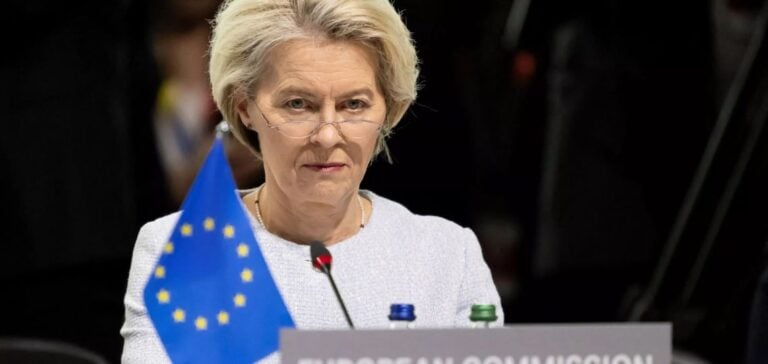During a European summit in Budapest, European Commission President Ursula von der Leyen presented a proposal to increase imports of liquefied natural gas (LNG) from the United States. This initiative responds to current trade tensions between the European Union and U.S. President-elect Donald Trump, who has threatened to tax imports of European goods to reduce the trade deficit.
This proposal, discussed in a phone call between the two leaders, raises the issue of “shared interests” between the two economic powers. Von der Leyen emphasized the importance of constructive dialogue to find mutually beneficial solutions, highlighting the possibility of replacing Russian gas with American LNG. By reducing its energy dependence on Moscow, the EU could, according to von der Leyen, benefit from reduced energy costs, with American LNG being perceived as more price-competitive.
A Context of Trade Tensions Between the EU and the United States
Donald Trump has made reducing the trade deficit with the European Union a major focus of his economic policy. During his campaign, he frequently criticized the EU’s trade surplus with the United States, accusing the bloc of taking advantage of transatlantic trade relations. To address this imbalance, Trump recently threatened to impose tariffs on European imports, a measure that could significantly impact several European industrial sectors.
In this context, von der Leyen’s proposal to increase American LNG imports could serve as a conciliatory gesture, addressing some of the trade concerns of the Trump administration while enhancing Europe’s energy security against Russian geopolitical pressures.
A Continued Energy Dependence
Despite diversification efforts, the European Union remains partly dependent on Russian gas imports. Since Russia’s invasion of Ukraine in February 2022, the EU has significantly increased its imports of American LNG, but the continent has not yet fully severed its energy ties with Russia.
Recent events have strengthened Europe’s resolve to secure its energy supplies by turning to other partners, particularly the United States. However, this energy transition strategy remains complex, partly due to the infrastructure required for LNG importation and distribution across the continent.
Prospects for Compromise Between the EU and the United States
Discussions between the EU and the United States could lead to a solution that addresses both energy and commercial interests. German Chancellor Olaf Scholz, when asked about Trump’s statements, emphasized that compromises are feasible, particularly given the importance of bilateral trade to American economic growth. Scholz argued that the interdependence of the two economies could support a common trade policy and prevent an escalation of tensions.
Von der Leyen also noted that despite their differences, there is a strong foundation for an enhanced partnership in the energy sector. She suggested that the EU could consider further increasing its imports of American LNG to offset Russian imports, provided Washington reassesses its trade tariffs.






















